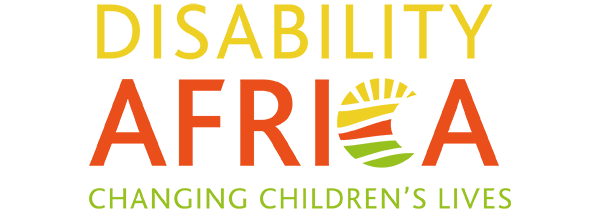Many organisations choose between advocacy and service delivery; between promoting people’s rights and giving them practical help. Disability Africa recognises that the only way to improve outcomes for disabled children and young people immediately and sustainably is to do both.
That’s why we combine the two in our replicable Template for Inclusive Community Development:
In African communities, many negative traditional beliefs exist due to a lack of understanding about people with impairments who are often seen as being non-human. This means that disabled people in Africa are among the poorest and most disenfranchised people in the world. They are isolated in their own homes and frequently go without education, medical care, social interaction and even food.
Playschemes deliver immediate, positive change – that’s why they are at the heart of our template of Inclusive Community Development. Playschemes enable us to:
1. Raise awareness and educate local communities in the rights and needs of disabled young people by:
Working with Schools: To educate teachers and prepare them to include disabled children and to inspire non-disabled students to think and act inclusively.
Creating Parent and Carers’ Support Groups: To provide information and support on impairments. Families of disabled children are often very isolated; a support group allows them to share issues and receive appropriate support. Sharing experiences also changes attitudes.
Advocating in the Community: Using meetings, events and radio programmes to educate and challenge attitudes to end children’s isolation and exclusion.
Training Young Volunteers: To ensure that our projects are locally led and sustainable.
Survey Local Communities: Currently, poor data means poor outcomes for disabled young people. By empowering local people to gather data, we can find and then support disabled children and their families.
2. Develop and deliver services to meet identified needs by partnering with local people to provide:
Inclusive Education: Encouraging access to local schools and giving support in the classroom. We envisage that our staff who work on our playschemes will also act as Classroom Assistants for disabled young people registered with us. We recognise that the relationship with the child, developed in the play environment, makes the playworker an ideal person to support a disabled child in to school.
Improved Infrastructure: Improving accessibility and, if necessary, constructing new dedicated facilities to support inclusion and deliver inclusive services. In The Gambia, we have built the Gunjur Inclusion Centre - a facility which includes a play room, a training room, a soft play therapy room and a physiotherapy clinic.
Medical Support: Funding surgery, providing medication, palliative care, regular home visits and after-care.
Community-Based Physiotherapy: Providing physiotherapy which is vital to children’s physical development and something which benefits the whole community. This includes providing prosthetics and mobility aids to individuals who would otherwise have to travel miles at great expense to get such help.
3. Replication and sustainability:
Every initiative that we have developed has potential for replication. Africa is a diverse continent and adaptation will be needed to different settings and cultures but the values we promote and the outcomes we seek are simple and universal - INCLUSION. We believe that our template needs to be replicated across Africa.
As projects are ready and have capacity and the governance in place we will work to make the project sustainable and independent - using the attitudes, approach and the staff in place to grow. Our approach already works with local organisations and people to deliver the service and this third stage is an obvious last stage of a the model and an alternative to ‘big aid’.

